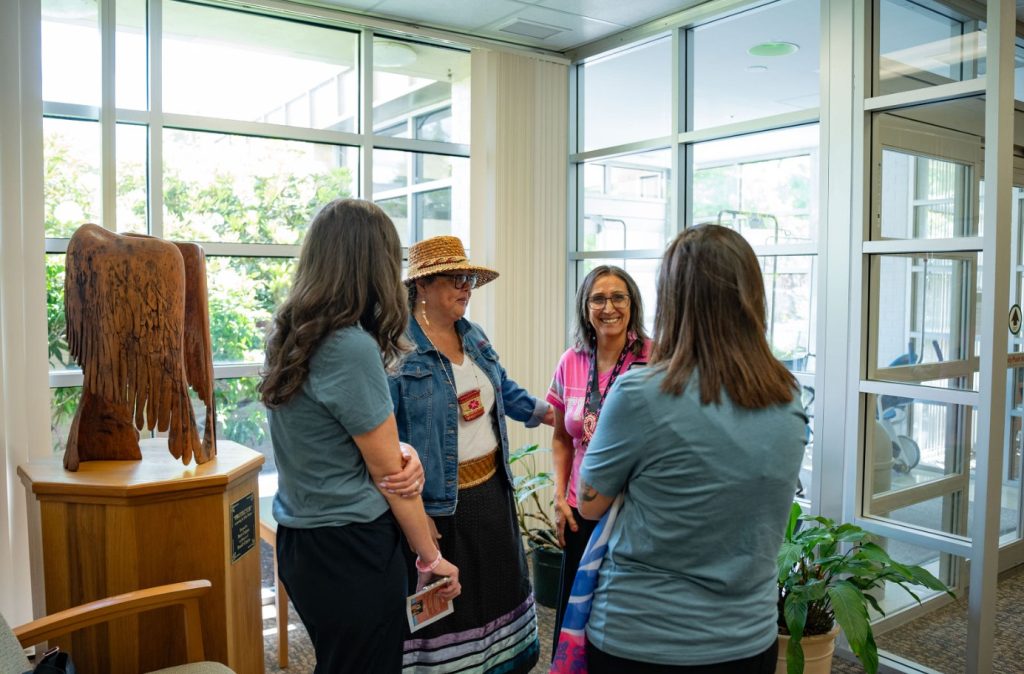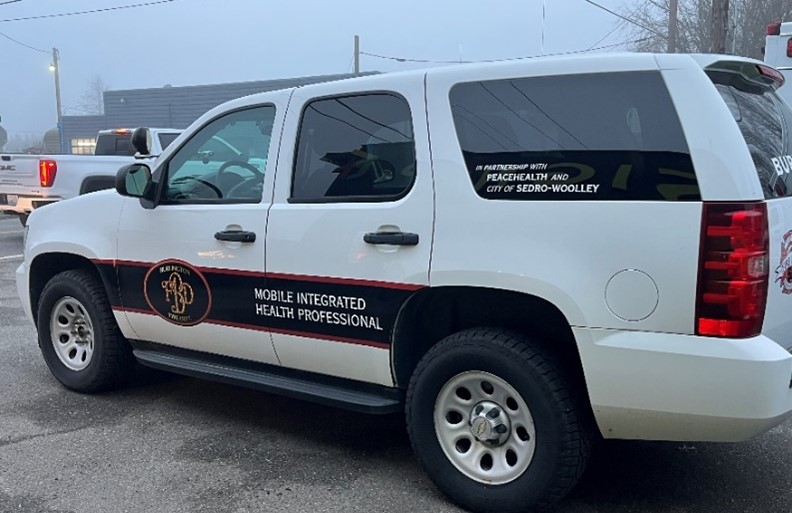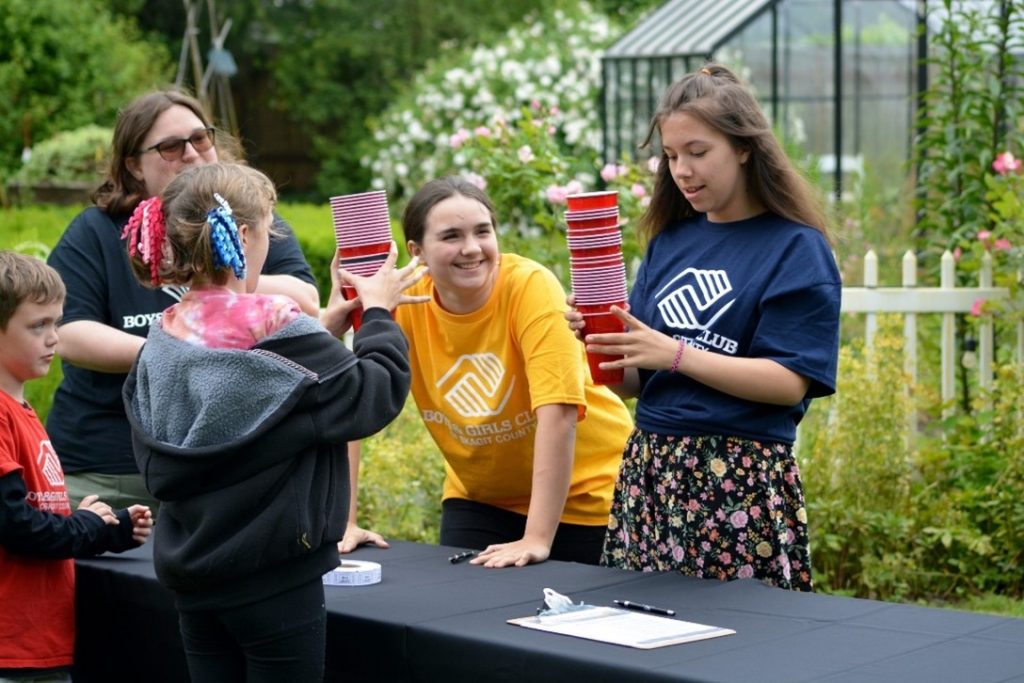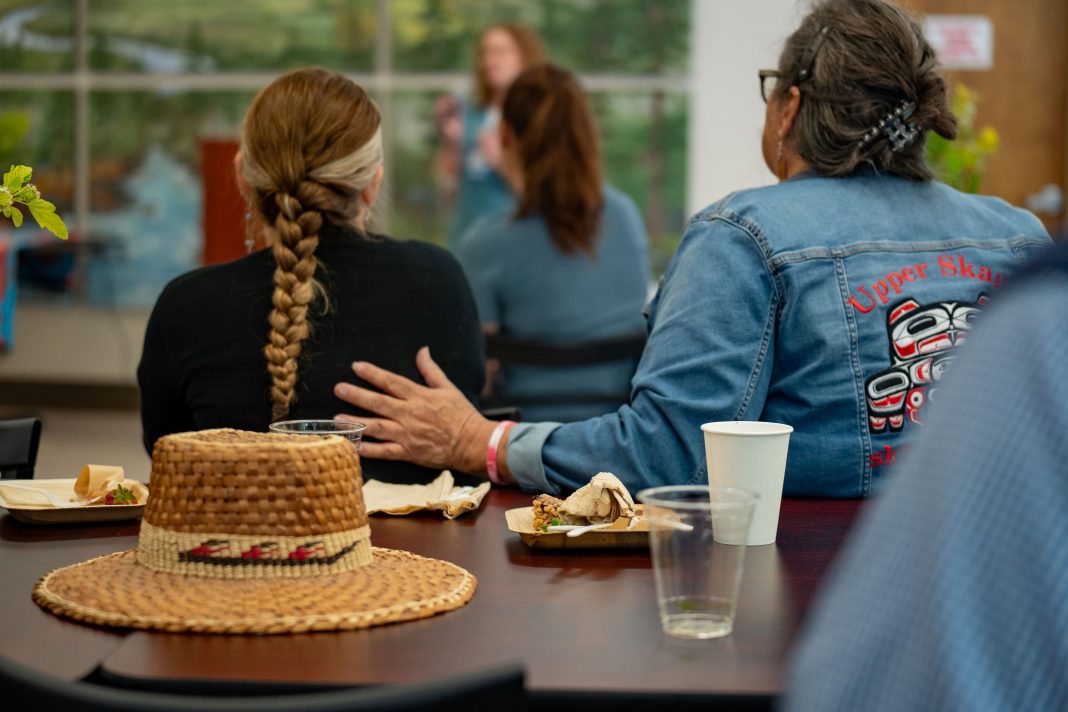Every three years, PeaceHealth conducts a series of Community Health Needs Assessments (CHNAs) to better understand the medical needs and trends in the communities it serves. These CHNAs reveal the greatest needs to address, serving as blueprints for how to do so – in part through partnerships with local organizations that specialize in particular areas of concern. The recent release of the Skagit County-based CHNA for PeaceHealth United General Medical Center highlights a number of community concerns that PeaceHealth and local service providers hope to make progress in addressing.
“The CHNA helps us as an organization to understand the entire landscape of health needs in our community, not just for those who come through the doors of our medical center and our clinics, but for the community overall,” says Rachel Lucy, director of community health for PeaceHealth in Northwest Washington.
The assessments draw on local datasets provided by data-gathering entities like Skagit County Public Health and the University of Washington, says Kelli Baker, United General’s community health specialist.
PeaceHealth is also informed by discussions with community partners, which in Skagit County include members of the Burlington Healthy Community Coalition, Concrete Community Center, Concrete Resource Coalition, United General District 304, Catholic Community Services and others.

Results of the assessment are organized into four pillars, or categories, which inform PeaceHealth’s community health efforts:
- Home, improving access to service-enriched housing;
- Hope, increasing education and access to treatment and prevention of substance use disorder;
- Care, expanding knowledge, access and engagement with community caregivers; and
- Nourish, addressing food insecurities to enhance family and child well-being.
These results enable PeaceHealth to identify how to distribute its annual community benefit grants, which provide hundreds of thousands of dollars towards community partners and their specific projects addressing community needs.
“We take pride in not only the financial support that we offer organizations, but also the partnerships that we are able to offer, whether that’s connecting them with other organizations or other resources,” Baker says.
Skagit Community Health Needs Assessments Shows Needs Growing
Unfortunately, Lucy says the needs in many of these categories only appear to be growing, both across the Pacific Northwest and Skagit County’s many rural communities.
Affordable housing for the area’s unhoused, medically-fragile and low-income family populations is currently inadequate. Many households in Skagit County fall into what’s called the ALICE category – Asset Limited, Income Constrained, Employed, which means they earn more than the federal poverty level but less than a county’s cost of living. As such, these households often don’t qualify for the financial assistance that lower-income earners do. This year’s CHNA suggests more than 19,000 county households (nearly 38% of total county households) fall below the ALICE threshold.
Substance use disorders – particularly opioid addiction – and behavioral health concerns also continue to be a critical area for additional service needs. Fortunately, data suggests that county-based opioid overdoses fell 13% in 2024 from the previous year. Still, one in six of those resulting overdoses resulted in death.
Food insecurity – also a trending topic due to federal-based budget cuts – is also on the rise in Skagit County. United General’s CHNA indicates that 38% of county residents utilized more than one food resource, and 2023 data suggests 11% of Skagit residents – including 16% of children under 18 – were experiencing food insecurity.
“We’re very concerned about potential local impacts from recent federal legislation,” Baker said. “We’re already seeing impacts to our local area food banks, childcare providers, HUD-based housing, and school districts.”

PeaceHealth Working to Combat Health Issues in Skagit County
Baker and Lucy are just two members of a local PeaceHealth network working with area non-profits, social service providers and other health partners to combat the series of complex societal health issues facing Skagit County.
On the housing front, PeaceHealth United General partnered with Community Action of Skagit County on Cascade Landing, a 34-unit affording housing apartment complex on the second floor of a Burlington office building. The organization is currently working on Kulshan View – a complex of 48 affordable housing units. Construction is set to begin next spring.
PeaceHealth has also collaborated with Family Promise of Skagit Valley, which has a current project to build modular cottages as temporary shelters for unhoused families.
The needs of both the elderly and vulnerable youth are also high on the priority list in Skagit County. PeaceHealth has worked with Children of the Valley on a youth enrichment program, as well as the expansion of behavioral health resources at the Boys and Girls Clubs of Skagit County.
Other programs supported by PeaceHealth include Meals on Wheels and United General District 304’s Help Me Grow and Move, Nourish, Thrive programs. The latter provides vouchers for fresh fruits and vegetables for adults ages 55 and older, along with access to the United Fitness Center.
Food insecurity is also being addressed locally through Burlington’s Tri-Parish Food Bank, which has expanded their culturally-relevant food offerings for underrepresented ethnic populations.

Community Action’s street outreach team has also made a difference for both substance abuse and behavioral health intervention, as well as basic healthcare services such as wound care. Recently, a retired PeaceHealth doctor, Dr. Eric Stark, began volunteering on the outreach team, Baker says.
PeaceHealth also funded a pilot program for a mobile integrated health unit shared between the Burlington and Sedro-Woolley fire departments. The program will allow paramedics to help case manage individuals who require recurring medical services but may not necessarily need transport to an emergency room.
Chris Johnston, chief administrative officer at United General, said community involvement on multiple levels is essential to good health.
“We know a healthy, thriving community requires a delicate balance of vital supports from many different resources,” he said. “Our PeaceHealth mission calls us, challenges us, and inspires us to be the connector for our United General community so that all have an opportunity to thrive.”
In addition to these community focuses, Lucy says PeaceHealth continues to provide vital financial assistance to those who seek care at United General but may not have the financial resources or insurance to afford it. “Anyone can come to us for care,” she says. “We have a very generous financial assistance program, options for payment plans, and the ability to streamline the financial assistance process. As more people become uninsured, that need is going to be more vital than ever, and we are going to continue to serve the community and not turn anyone away.”
Sponsored




































